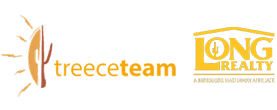Relocating to Tucson, Arizona
The largest city in southern Arizona and one of the fastest growing areas in the Southwest, Tucson is both a bustling business center and a laid-back university and resort town. The days of rowdy saloons and the Butterfield Stage rolling over dusty city streets are gone, but the independent feeling of the Old West remains. Tucsonans embrace the lifestyle and live where the American dream still comes true, where individual voices are heard, and where people can make things happen.
Click here to learn more about the Tucson community and activities
Tucson History
Nicknamed “The Old Pueblo”, the name Tucson comes from the O‘odham tribe and was pronounced chuk-shon, meaning “spring at the foot of a black mountain.” Continuously inhabited for more than 12,000 years, the area has been home to Native Americans, Spanish explorers, Mexicans, Europeans, and Westbound pioneers. Archeologists have found evidence of the ancient Hohokam civilization living in the Tucson basin as early as 900 A.D.
In 1539, a Spanish expedition led by Fray Marcos de Niza traveled through the area searching for the Seven Cities of Cibola. Don Hugo O’Connor, an Irish officer in Spain’s military, established the Tucson Presidio, a military outpost, in 1775. When Spanish settlers arrived in 1776, the Presidio was enclosed for protection from the native Apache tribe. Tucson officially became part of the United States with the Gadsden Purchase of 1854 and served as capital of Arizona Territory from 1867 to 1877. The Southern Pacific Railroad arrived in 1880 paving the way for modern growth, which was further stimulated by the founding of the University of Arizona in 1885.
Business & Industry in Tucson
Tucson’s competitive edge as a profitable place to do business is based on factors including competitive wages, a moderate tax structure, a low cost of living, and the availability of industrial sites, education and training programs. An $800 million downtown urban redevelopment project has also breathed new life into Tucson, which boasts a current population of 1.2 million. Tucson’s economy is based on the arts, tourism, manufacturing and high-tech industries. Tourism continues to grow due to Tucson’s climate. Manufacturing is increasing, including companies such as AlliedSignal, 3M, and Krueger Industries, Inc. The high-tech sector is also expanding including IBM, Honeywell, Raytheon Missile Systems and Texas Instruments to name a few.
Forbes ranks Tucson in the top 20 Most Innovative Cities and a survey by the magazine found Tucson has the eighth shortest commute in the country. Time named Tucson an Intelligent City for its innovative water conservation techniques while Outside magazine called Tucson “The Hottest Playground” when it named the city one of the Best Towns Ever. The Brookings Institute even ranked Tucson as the #4 city for combined access to transit and jobs.
Tucson Healthcare
The Greater Tucson area has 15 hospitals, including the Tucson Heart Hospital and an expansive medical community. The University of Arizona’s Health Sciences Center has the state’s only College of Medicine including eight Centers of Excellence. In 2014, Banner Health purchased University Medical Center with one of only nine organ transplant programs in the nation.
The metropolitan area is home to several leading managed care companies including Intergroup Health Care Corporation and Partners. The American Board of Radiology is headquartered in Tucson and there are more than 4,000 Holistic medicine providers in the city. The nationally accredited Desert Institute of the Healing Arts offers certification in Massage Therapy, Zen Shiatsu, Reflexology and Thai Massage. The nationally accredited Arizona School of Acupuncture and Oriental Medicine and the Asian Institute of Medical Studies offer master’s degrees in Acupuncture and Oriental Medicine.
To submerse yourself in the rich culture and history of Tucson’s southwestern luxury lifestyle, contact the Treece Team today at (520) 918-7462.
Search Homes in Tucson
- No Min – $250,000
- $250,000 – $300,000
- $300,000 – $350,000
- $350,000 – $400,000
- $400,000 – $450,000
- $450,000 – $500,000
- $500,000 – $550,000
- $550,000 – $600,000
- $600,000 – $650,000
- $650,000 – $700,000
- $700,000 – $750,000
- $750,000 – $800,000
- $800,000 – $850,000
- $850,000 – $900,000
- $900,000 – $950,000
- $950,000 – $1,000,000
- $1,000,000 – No Max
Gated Community Homes in Tucson
- $200,000 – $300,000
- $300,000 – $400,000
- $400,000 – $500,000
- $500,000 – $600,000
- $600,000 – $700,000
- $700,000 – $800,000
- $800,000 – $900,000
- $900,000 – $1,000,000
- $1,000,000 – No Max
On Golf Course Homes in Tucson
- $200,000 – $300,000
- $300,000 – $400,000
- $400,000 – $500,000
- $500,000 – $600,000
- $600,000 – $700,000
- $700,000 – $800,000
- $800,000 – $900,000
- $900,000 – $1,000,000
- $1,000,000 – No Max

